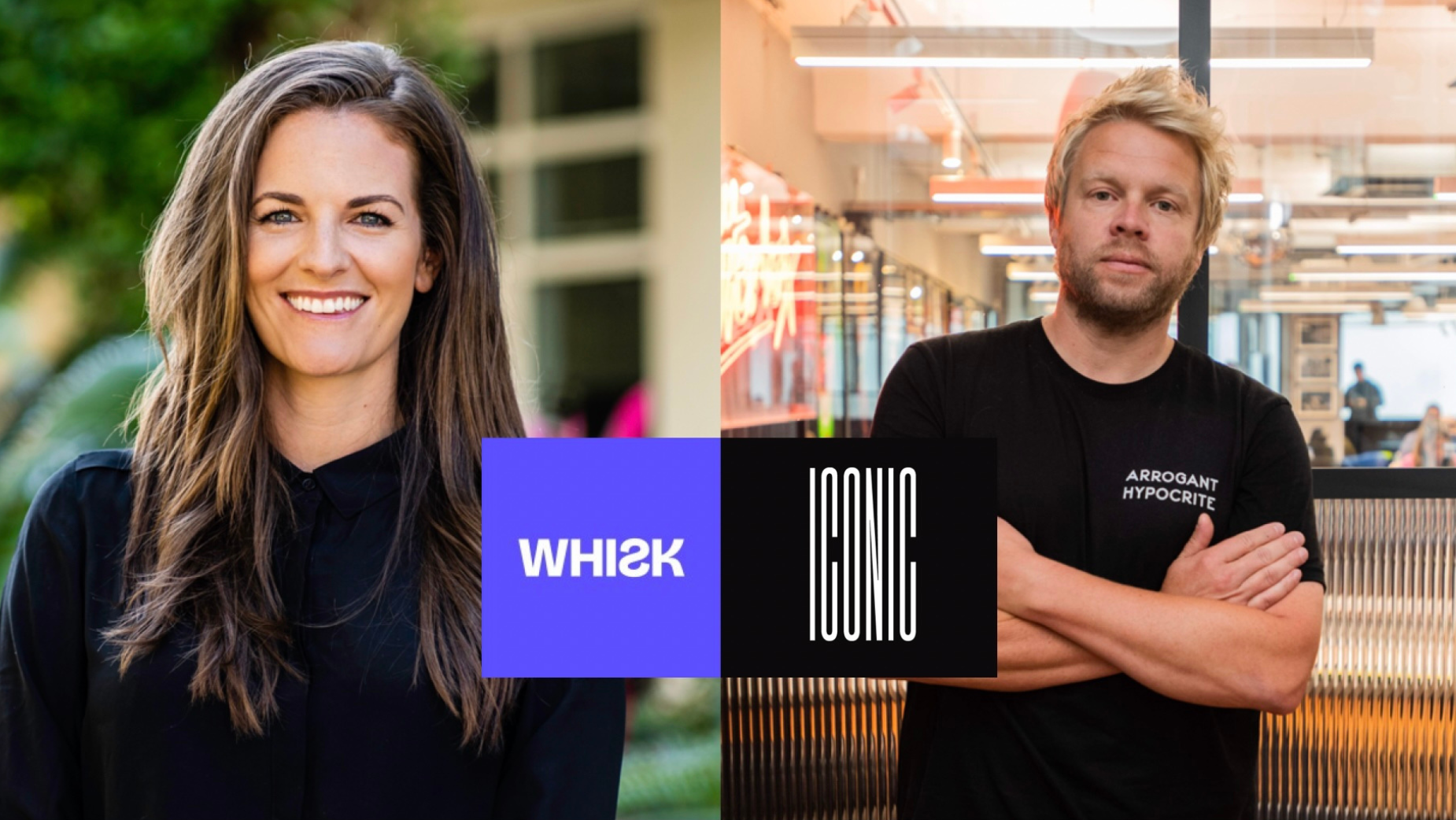
ICONIC and WHISK Open up a Conversation about Culture, Communities, Cortez and Coffee

Amy is the CEO and founder of Whisk, a community partnership agency that helps brands develop the most engaging and impactful campaigns in the best rapidly growing online 'community' platforms. Whisk is on a mission to bring community partnerships to brands at scale, by finding the most passionate and impactful online spaces that brands don’t know about, and showing them how they can influence sub-culture and show up meaningfully, authentically and creatively to drive true business results.
Amy has spent 18 years in social and digital agencies, educating brands on the latest trends and best practices in the online world. She was part of Outside Line as they were acquired by Saatchi & Saatchi, which took her from London to New York. She’s worked on brands such as HSBC, Weight Watchers, Kerry Foods, British Gas, VRBO, Cadillac and Walmart.
James Kirkham is CEO and founder of ICONIC. Widely acknowledged as one of the world’s foremost industry speakers, James comes from a wide ranging career in social, digital, advertising, sports and music marketing. He was previously on the board at Defected Records as its chief business officer. Before that, he was CBO at football media business COPA90, working with brands that included Uber, Budweiser, Nike and Pepsi. James had founded his own digital marketing agency Holler, when he was just 23. Holler was acquired by Publicis Group in 2010, after which he was appointed Global Head of Social and Mobile at Leo Burnett. ICONIC is a full service agency, and entertainment company which aims to give brands a unique insight into how they can harness the power of popular culture. In a new era of marketing, ICONIC underpins all processes with a network of creative cultural talent, and AI.
Amy> This looks fun, why are we talking like this? I thought you were helping me write a piece on culture for my LinkedIn.
James> We are, but we need people to read it. So I thought if we're just having our conversation then maybe people will like it.
Amy> Sounds weird. And why culture anyway, like everyone says they're doing it these days, surely brands know enough?
James> Look, there's a lot more to It than just talking about the new Adidas Samba x Wales Bonner collab or me donning a latest Nigeria football shirt.
Amy> Alright, keep your shirt on. I do agree though. I think a brand can't tap into culture, without tapping into community.
James> How so?
Amy> Well if you're in culture, you need to be a part of a conversation. Brands can't tap into the former without having a part of the latter. Or it will fall flat, or reek of marketing.
James> I wondered what that was. And what do you call a community these days?
Amy> Well it is more than a hashtag. Or an insta grid of likes. They’re a thriving dedicated place where people passionately share, support. They have a low tolerance of bullshit. They're not driven by an algorithm either.
James> Feels right, so that's why gaming or football or electronic music have such lively homes for their fans?
Amy> Yes, but it doesn't just have to be the biggest. It can be everything from Bengal cats to coffee beans. Wherever passion lives, communities appear.
James> I'd kill for a coffee now. Skinny latté. No sugar.
Amy> Concentrate, this is important. If brands actually care about creating human connections they need to know this. If they want to stop being a slave to algorithms in the biggest of big tech, this is for them.
James> So that means they don’t just have to pour money into the same monster platform black hole, they can look further and go deeper?
Amy> Correct. You always talk about giving brands a queue jump to the front of popular culture. I always talk about a brand being a part of the authentic communities. The thing is, the best brands do both.
James> Yes. Most realise that culturally relevant advertising and media is a must now. Or you’re nowhere. Culture via community is their cheat code. Connecting with audiences by participating in the conversations they’re having in the communities they’re building.
Amy> Bingo. I think we’re done.












